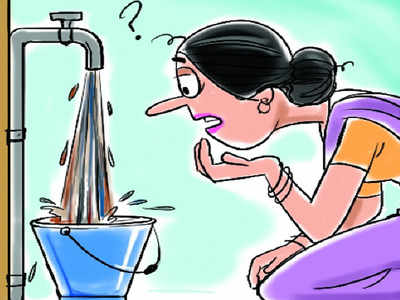The Times of India 09.03.2013
Nagpur Municipal Corporation to block sewage inlets at Nag river
(NMC) has decided to fine those doing so. Unless sewage discharge into
the river is stopped, the four mini sewage treatment plants (STPs) being
constructed by NMC will be of no use.
Standing committee chairman Avinash Thakre rued that many people residing near the river had terminated their sewage line at Nag river
turning it into a drain. “We will serve notice to them and give them
time to take remedial steps like building septic tanks. If they do not
act, we will first impose fines followed by action under environmental
laws,” he said.
Recently, Sole had asked health department
officials to find out at how many places sewage was being discharged
directly into the river. After the report is ready, the civic body will
start sending notices to violators.
Thakre said, “NMC receives
almost 540 million litre per day (MLD) fresh water and generates nearly
500 MLD waste water. The city has been divided into three sewage zones.
North and south Nagpur generate 150 MLD sewage each while central Nagpur
generates 200 MLD. Only central zone has proper underground sewage
network built during the British era.”
NMC sources told TOI
that there were nine sewage inlets into the Nag river in Dhantoli zone.
Sewage from most slums like Sangam Chawl, Kumbhar Toli, Jai Bhim Nagar,
Johripura, etc is directly discharged in it. Even sewage from well-off
areas like Congress Nagar, Karve Nagar and Karnalbagh is released into
the river. The scenario is same in Nehru Nagar and Lakadganj zones.
Sewage lines are directly connected to the river at 46 places in Nehru
Nagar zone. Residential complexes release sewage into the river at 40
places. In Lakadganj zone, sewage line of MHADA Colony discharges into
the river.
Sole has decided to launch a massive campaign to
clean up the three rivers and lakes of the city starting from May.
Summer is ideal season for such activities as water level is low. “I
have discussed the issue with some environmentalists and experts. They
will also be involved,” Sole told TOI.
He talked to Sudhir
Paliwal of Vidarbha Environmental Action Group on Friday. Paliwal agreed
to offer his services. Later Paliwal told TOI, “Other than lakes and
rivers it is very important to preserve the natural springs. They are
the sources of these water bodies. One such spring is on LIT premises
and unless the college authorities took care, it may be buried under the
debris of ongoing construction,” he said.

